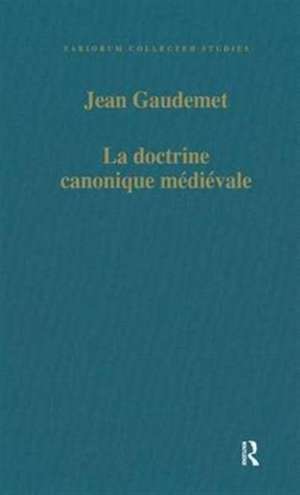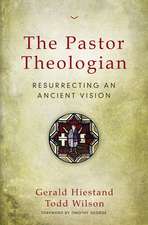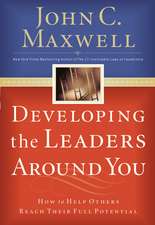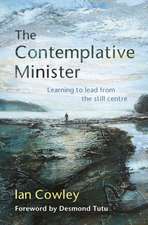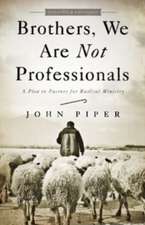La doctrine canonique médiéval: Variorum Collected Studies
Autor Jean Gaudemeten Limba Engleză Hardback – 17 mar 1994
Din seria Variorum Collected Studies
-
 Preț: 311.18 lei
Preț: 311.18 lei -
 Preț: 310.55 lei
Preț: 310.55 lei -
 Preț: 299.55 lei
Preț: 299.55 lei - 9%
 Preț: 1041.23 lei
Preț: 1041.23 lei -
 Preț: 386.77 lei
Preț: 386.77 lei -
 Preț: 351.48 lei
Preț: 351.48 lei -
 Preț: 313.38 lei
Preț: 313.38 lei -
 Preț: 386.77 lei
Preț: 386.77 lei -
 Preț: 310.22 lei
Preț: 310.22 lei -
 Preț: 258.66 lei
Preț: 258.66 lei -
 Preț: 343.33 lei
Preț: 343.33 lei - 9%
 Preț: 938.44 lei
Preț: 938.44 lei -
 Preț: 311.41 lei
Preț: 311.41 lei - 9%
 Preț: 938.85 lei
Preț: 938.85 lei -
 Preț: 312.75 lei
Preț: 312.75 lei - 9%
 Preț: 936.60 lei
Preț: 936.60 lei -
 Preț: 341.55 lei
Preț: 341.55 lei -
 Preț: 320.00 lei
Preț: 320.00 lei - 34%
 Preț: 764.20 lei
Preț: 764.20 lei - 22%
 Preț: 312.43 lei
Preț: 312.43 lei - 34%
 Preț: 739.65 lei
Preț: 739.65 lei - 34%
 Preț: 764.20 lei
Preț: 764.20 lei - 34%
 Preț: 680.73 lei
Preț: 680.73 lei - 26%
 Preț: 247.40 lei
Preț: 247.40 lei - 34%
 Preț: 485.78 lei
Preț: 485.78 lei - 34%
 Preț: 764.20 lei
Preț: 764.20 lei - 34%
 Preț: 769.51 lei
Preț: 769.51 lei - 34%
 Preț: 764.20 lei
Preț: 764.20 lei - 34%
 Preț: 826.68 lei
Preț: 826.68 lei - 25%
 Preț: 222.32 lei
Preț: 222.32 lei - 25%
 Preț: 225.54 lei
Preț: 225.54 lei - 34%
 Preț: 767.07 lei
Preț: 767.07 lei - 34%
 Preț: 764.20 lei
Preț: 764.20 lei - 34%
 Preț: 736.38 lei
Preț: 736.38 lei - 34%
 Preț: 738.42 lei
Preț: 738.42 lei - 25%
 Preț: 226.52 lei
Preț: 226.52 lei - 33%
 Preț: 491.66 lei
Preț: 491.66 lei - 34%
 Preț: 485.78 lei
Preț: 485.78 lei - 34%
 Preț: 485.78 lei
Preț: 485.78 lei - 34%
 Preț: 764.20 lei
Preț: 764.20 lei - 34%
 Preț: 736.38 lei
Preț: 736.38 lei - 31%
 Preț: 473.94 lei
Preț: 473.94 lei - 18%
 Preț: 807.71 lei
Preț: 807.71 lei - 34%
 Preț: 764.20 lei
Preț: 764.20 lei - 34%
 Preț: 764.20 lei
Preț: 764.20 lei - 34%
 Preț: 764.20 lei
Preț: 764.20 lei - 51%
 Preț: 485.78 lei
Preț: 485.78 lei - 34%
 Preț: 485.78 lei
Preț: 485.78 lei - 34%
 Preț: 769.10 lei
Preț: 769.10 lei - 34%
 Preț: 766.65 lei
Preț: 766.65 lei
Preț: 242.99 lei
Preț vechi: 324.60 lei
-25% Nou
Puncte Express: 364
Preț estimativ în valută:
46.50€ • 48.04$ • 38.68£
46.50€ • 48.04$ • 38.68£
Carte tipărită la comandă
Livrare economică 19 martie-02 aprilie
Preluare comenzi: 021 569.72.76
Specificații
ISBN-13: 9780860784159
ISBN-10: 0860784150
Pagini: 337
Dimensiuni: 150 x 224 x 25 mm
Greutate: 0.54 kg
Ediția:1
Editura: Taylor & Francis
Colecția Routledge
Seria Variorum Collected Studies
Locul publicării:Oxford, United Kingdom
ISBN-10: 0860784150
Pagini: 337
Dimensiuni: 150 x 224 x 25 mm
Greutate: 0.54 kg
Ediția:1
Editura: Taylor & Francis
Colecția Routledge
Seria Variorum Collected Studies
Locul publicării:Oxford, United Kingdom
Public țintă
Academic and PostgraduateCuprins
Contents: Preface; Théologie et droit canonique: les leçons de l'histoire; Essai de systématisation en droit canonique; La coutume en droit canonique; Le droit romain dans la Collectio canonum du Cardinal Deusdedit; Sagesse biblique et droit canonique; L’héritage de Grégoire le Grand chez les canonistes médiévaux; Le deuxième concile de Nicée (787) dans les Collections canoniques occidentales; Grégoire VII et la France; La Primauté romaine vue par Ives de Chartres; La Primauté pontificale dans le décret de Gratien; L’ordre du monde vu par canoniste à la fin du XIe siècle; Quelques opinions des docteurs médiévaux sur le rôle du peple dans le gouvernement; Les vicissitudes du Gallicanisme; Persona; Baptismus, ianua sacramentorum (CJC, c. 849): baptême et droits de l'homme; L'évolution de la notion de Sacramentum en matière de mariage; Il diritto canonico nella storia della cultura giuridica europea; Index.
Descriere
The question these articles seek to respond to, in this fifth collection by Jean Gaudemet to be published by Variorum, is how the intellectual elite of the medieval Church perceived the institutions among which they lived - how they portrayed them, and how they sought to influence them. Whether dealing with the papacy and its place in the Church and the world, with the role of the people in government, or with the position of the individual in society, he would argue that this is the essential question. In their response, this elite drew on the Bible and custom, on Roman law and papal letters, in order that the law could encompass all human experience. To achieve this, these jurists needed to create categories and work out principles, hence the recourse to theology and the necessity for a logical structure, a ’systematization’.
